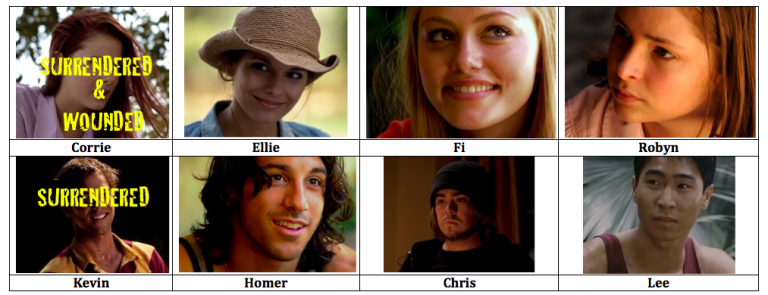Title: The Winter Queen (Originally in Russian as Azazal: 1998; English: 2004)
Author: Boris Akunin
Series: The Erast Fandorin series
Official Synopsis:
Moscow, May 1876. What would cause a talented student from a wealthy family to shoot himself in front of a promenading public? Decadence and boredom, it is presumed. But young sleuth Erast Fandorin is not satisfied with the conclusion that this death is an open-and-shut case, nor with the preliminary detective work the precinct has done–and for good reason: The bizarre and tragic suicide is soon connected to a clear case of murder, witnessed firsthand by Fandorin himself.
Relying on his keen intuition, the eager detective plunges into an investigation that leads him across Europe, landing him at the center of a vast conspiracy with the deadliest of implications.
-Taken from the official Boris Akunin website
Review
Pages: 264
Chapters: 17
Story:
On Monday the thirteenth of May in the year 1876, between the hours of two and three in the afternoon on a day that combined the freshness of spring with the warmth of summer, numerous individuals in Moscow’s Alexander Gardens unexpectedly found themselves eyewitnesses to the perpetration of an outrage that flagrantly transgressed the bounds of common decency.
I first heard about the Erast Fandourin series from my friend Nazym while we were on vacation in Istanbul, Turkey. We had been discussing our mutual love for detective fiction and television – specifically BBC’s Sherlock. Nazym urged me to read The Winter Queen, saying that Erast Fandourin was Russia’s version of Sherlock Holmes, and since I am a bit of a Russophile and a literature nerd, that sounded fantastic.
A month later my parents gave me a Kindle for my birthday, and one of the first books I downloaded was WQ.
The novel has a great beginning. Before introducing to us our detective, Akunin throws us into the middle of Pyotr Alexandrov Kokorin’s very public suicide. The student harasses a young woman and her companion at the Alexander Gardens, and when the young woman refuses to kiss him, Kokorin shoots himself, and
[w]hen the shot rang out, the suicide’s head was instantly jerked to one side and a thin fountain of red and white matter spurted from the exit wound just below his left ear.
We are then introduced to “Xavier Feofilaktovich Grushin, detective superintendent of the Criminal Investigation Division of the Moscow Police,” and “Erast Petrovich Fandorin, clerk and civil servant fourteenth class.” Grushin is not interested in the suicide, but when he realizes that Fandorin is and wants to investigate, he lets the young man go, believing that nothing will come of it. Instead, Fandorin tracks down one Nikolai Stepanich Akhtyrtsev and finds himself pulled into the world of Amalia Kazimirovna Bezhetskaya, a femme fatale also connected to the tragic Kokorin. Akhtyrtsev confesses to Fandorin that Bezhetskaya persuaded him and Kokorin to a duel, and that he is the reason why Kokorin is dead. Before Fandorin can truly understand what his informant means, they are attacked and Akhtyrtsev is murdered:
Erast Fandorin’s first thought was, He’s stabbed him in the liver, and from somewhere or other his memory cast up a sentence from the gymnasium textbook on biology – “Liver – an organ in the body of an animal that separates blood from bile.” Then he saw Akhtyrtsev die. Erast Fandorin had never seen anyone die before, but somehow he knew immediately that Akhtyrtsev had died.
-Chapter 5
The only clue Fandorin is left with after this horrible event is the word the attacker spoke as Akhtyrtsev died: “Azazel.”
Grushin tries to guide Fandorin throughout his investigation, but Fandorin finds himself drawn to their new boss, Ivan Franzevich Brilling. Brilling brings to the CID modern investigation techniques – namely, the deductive method, and impresses the 20-year-old Fandorin with his Holmesian deductions.
Soon Fandorin is traveling throughout Russia and Europe, eventually making his way to Victorian London. Although he’s attacked multiple times and almost ruins everything, his unwavering sense of justice and standard of morality keep him going, even though his world crashes down around him.
And then of course there is the lovely Elizaveta Alexandrovna Evert-Kolokoltseva, the young lady who witnessed the death of Kokorin and with whom Fandorin has fallen head-over-heels-in love.
Now, good detective stories are supposed to follow a set of rules. The following are Ronald Knox’s Ten Commandments, first published in 1929, from the Golden Age of Detective Fiction:
I. The criminal must be someone mentioned in the early part of the story, but must not be anyone whose thoughts the reader has been allowed to follow.
II. All supernatural or preternatural agencies are ruled out as a matter of course.
III. Not more than one secret room or passage is allowable.
IV. No hitherto undiscovered poisons may be used, nor any appliance which will need a long scientific explanation at the end.
V. No Chinaman must figure in the story.
VI. No accident must ever help the detective, nor must he ever have an unaccountable intuition which proves to be right.
VII. The detective must not himself commit the crime.
VIII. The detective must not light on any clues which are not instantly produced for the inspection of the reader.
IX. The stupid friend of the detective, the Watson, must not conceal any thoughts which pass through his mind; his intelligence must be slightly, but very slightly, below that of the average reader.
X.Twin brothers, and doubles generally, must not appear unless we have been duly prepared for them.
Of course, for commandments these rules are not set in stone. However, WQ follows at least 7 dutifully and teases the remaining three.
Characters:
Erast Fandorin – Nazym described Fandorin as the Russian Sherlock Holmes, and perhaps in the later books he is, but in WQ he’s green. In some ways, I feel as if WQ is a prequel – as if we’re getting a sneak into the past life of the great detective Fandorin to see how he came to be. Similar to if someone wrote a book about a teen Holmes, or the James Bond film Casino Royale – the only Bond film I’ve ever liked simply because Daniel Craig’s Bond is not perfect.

Russian cover
In WQ, Fandorin is naive and a bit of a bumbling idiot. There is no Dr. Watson character because Fandorin doesn’t need one. He’s got that role covered. As the novel progresses and Fandorin gains experience, he develops well but still maintains a wide-eyed innocence.
Thus, to me he’s nothing like Sherlock Holmes, but I can see how he could become Holmes.
There are, obviously, other characters involved, but I fear discussing them here might give away too much information.
Recommendation:
Pros – Interesting story; certainly edge-of-your-seat material. Complex and thrilling. Relatable protagonist. Humorous moments.
Cons – Gory. Melodramatic. Several twists and turns that are too sudden and unexpected. Flirts with commandments VI and VIII. Ending galled me.
When I finished the novel, I was so angry. I had read the final chapter in my taxi ride home from work, and I entered my flat, tossed my Kindle onto the couch, and screamed, much to the confusion of my friend Pamela. I don’t mind a good cliffhanger, but this wasn’t a cliffhanger. This was a “How-can-we-unsettle-our-readers-and-completely-damage-our-hero-in-the-worst-possible-way” moment. I would say that my main problem with the novel is that the twists were not intelligent but melodramatic. If a writer throws in a sudden twist and I the reader have to question everything I thought I believed, I’m okay with that as long as it makes logical sense. If it doesn’t, or if it relies too heavily on shock and horror, I get very angry.
I was angry for most of this novel.
I did, however, enjoy a few amusing language moments. Since the novel was originally written in Russian, there were a couple of parts that I found enjoyable due to the author’s jabs at English. In fact, after having been angry for several chapters, the tension cracked when I read the following passage:
The sly rogue of a porter doesn’t have a word of French, and the only English I know is ‘bottul viskey’ and ‘moov yoor ass’ – a midshipman I used to know taught me that. It means give me a bottle of the strong stuff and look sharp about it. I asked that porter, the English shrimp, about —- —–, and he jabbered something in his own lingo and shook his head and pointed somewhere backward, as if to say —‘s gone, but he doesn’t know where. Then I took a stab at you: ‘Fandorin, I say, Fandorin, moov yoor ass.’ And then – mind you don’t take offense, now – he opened his eyes wide in amazement. Your name obviously means something indecent in English. Anyway, the flunky and I failed to reach a mutual understanding.
-Chapter 12
Verdict:
It’s a decent story, but I think my expectations were too high or perhaps just misplaced. I’m interested in reading the rest of the series, but not so interested that I won’t rest until I’ve devoured all 12 books.
The rest of the series:
02 – The Turkish Gambit, 03 – Murder on the Leviathan, 04 – The Death of Achilles, 05 – Special Assignments, 06 – The State Counsellor, 07 – The Coronation, 08 – She Lover of Death, 09 – He Lover of Death, 10 – The Diamond Chariot, 11 – Jade Rosary Beads, and 12 – All the World’s a Stage
Rating: 3 out of 5 stars
1 star – Avoid
2 stars – Wait for the movie
3 stars – Borrow from a friend or library
4 stars – Worth your money
5 stars – This book will change your life
Audience Level Rating: PG-13 for themes, violence, gore, and some mild language
Adapted from Novel Book Ratings






